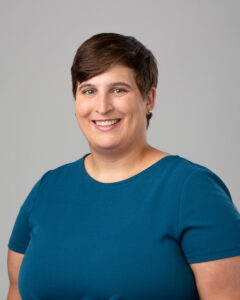Another key factor is correctly identifying and triaging the subset of patients with severe disease who can’t wait several months for referral. Dr. Jonas notes that it’s important for primary care providers to successfully identify those patients and clearly communicate that information to rheumatologists (e.g., a protein in the urine for a patient with potential lupus), so those patients can be scheduled quickly for an urgent clinic appointment or even seen via emergency care providers if needed.
Mollie R. Myers, MD, who recently began work as a family medicine doctor at Northern Light Primary Care, Hampden, Maine, notes, “I want to know which people need to be referred, give them a full workup and maybe even start some sort of treatment, but then leave the finer management to [rheumatology] specialists.”
In-Person Mentoring
Some people have characterized overall medical education in rheumatic and musculoskeletal issues as inadequate. This may pose a significant problem because 10–30% of the complaints that drive patients to primary care may be rheumatic or musculoskeletal in nature. Some physicians lack confidence in certain elements of their diagnosis and management, as well as the musculoskeletal exam or arthrocentesis; not all may be able to distinguish autoimmune disease from other causes.3
Physicians trained in family medicine, internal medicine or pediatrics who opt to become primary care physicians vary in the amount of rheumatology-specific training they receive. During medical school and residency, rotations in rheumatology are typically optional. Trainees do receive didactic education in these topics, and they see many patients with musculoskeletal and rheumatic complaints during clinic. However, Dr. Myers points out this is typically done under the preceptorship of non-specialists who lack the expertise of rheumatologists.
Although virtual resources can provide significant support, in-person training and mentoring can provide an additional level of education and confidence in treating rheumatology patients. For example, Dr. Myers chose to pursue a plus-one post-residency program in osteopathic neuromusculoskeletal medicine after completing her initial residency training in family medicine. As part of this plus-one program, she opted for a month-long rotation in rheumatology, in which she spent three weeks with Dr. Engelbrecht and another week with his partner, Charles D. Radis, DO, also a rheumatologist in Ellsworth.
Dr. Myers points out that musculoskeletal complaints directly affect other aspects of health that are core to general practice. “If someone isn’t exercising and walking, their cardiovascular health suffers, as does their mental health. I like working with these issues as much as I can manage on my own, so I don’t have to send everybody out to orthopedics or rheumatology,” she says.



